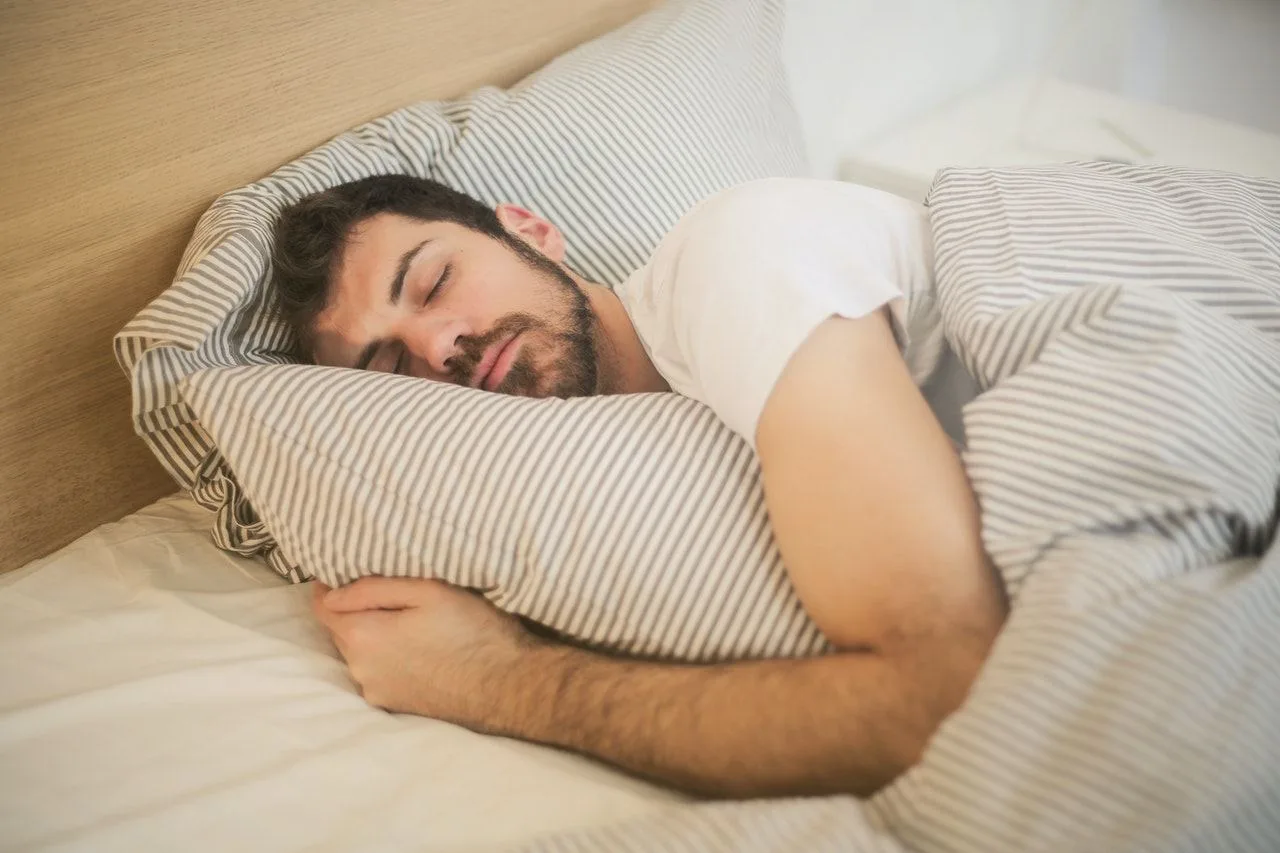Longevity Live Partner Content. We associate testosterone with men because they tend to have more of it, but keeping testosterone at healthy levels is important for men and women, even as we age.
Many lifestyle factors can lead to lower testosterone. And in some cases, they can decrease testosterone levels at an accelerated rate, leading to undesirable side effects in people of all ages.
But the good news is that you can turn this practice around and restore your body’s natural testosterone-generating potential. And it’s probably easier than you think.
1. Weight-Train
Most people understand the importance of physical activity and try to get their weekly 150 minutes, as recommended by the CDC. But the CDC also accentuates the importance of doing some weight training.
Hormone levels are just one reason why. Studies show older people who exercise regularly have higher testosterone levels. Weight training has also been shown to increase testosterone levels in men with obesity.

Photo by Alonso Reyes on Unsplash
2. Supplement
When combined with other testosterone-increasing lifestyle choices, testosterone boosters can be a natural way to support healthy hormone levels.
Most use very natural herbs like ashwagandha and ginger that have been scientifically shown to increase testosterone.
3. Stop Dieting To Lose Weight
Both significant calorie reduction and overeating can lead to low T. You need a healthy amount of protein, fat, as well as cholesterol to synthesize testosterone. Your body can produce ample cholesterol, so whether or not you choose to get more through your diet is a personal choice you can discuss with your doctor.
You also need a proper intake of vitamins and minerals for hormone balance. When you’re dieting, you’re unlikely to get the levels of many nutrients you need. If you’re overeating, chances are you’re eating lots of ultra-processed, nutrient-lacking foods.
To increase testosterone, add more whole foods to your diet from various plant and animal sources (unless you’re vegan). This will help balance and optimize all hormones for a healthier you.
4. Improve Stress Response
As it turns out, an overabundance of stress hormones re-route your body’s hormone-producing resources away from testosterone and muscle production. This can negatively impact your levels if you stay in a state of stress.

Photo by Omid Armin on Unsplash
But the goal is never to eliminate stress. You’ll only get more stressed if you try. Because guess what? The less stress you experience, the more stressful, less stressful things seem. Just as muscles grow with each workout, our bodies adapt to stressors and can deal with more of them.
But before you go out there and try to stress yourself out and bulk up your stress response, know this. How you respond to it impacts whether stress makes you stronger or weaker.
If you stress out, self-medicate and marinate in stress, it destroys your immune system and disrupts hormone production. But when you learn to manage it and let stuff go, your body’s ability to handle stress with a lesser stress response increases. So you need fewer stress hormones to deal with stress.
5. Get Your Vitamin D
Vitamin D is, in fact, a hormone, not a vitamin. You produce it when exposed to sunlight. But you can also get it from mushrooms, eggs, supplements, and fortified products.
Vitamin D is critical for testosterone production, so you need to make sure you’re getting enough of it to increase this vital hormone.

Photo by Andrea Piacquadio from Pexels
6. Get Your Zzzz
Your muscles repair and grow, not at the gym, but while you sleep. So if you’re getting insufficient sleep, your strength will suffer.
This becomes a vicious cycle because you need this hormone to build muscle, but poor muscle tone can also decrease it. A long-term study of adult men who only slept four hours a night found they were much more likely to have deficient levels.
To get better sleep:
- Get your daily exercise
- Avoid caffeine later in the day, and know that some people are genetically predisposed to caffeine sensitivity and can’t drink it beyond a few hours after waking up. If this is you, listen to your body.
- Create a sleep ritual to ease yourself into a more restful sleep
- Set a consistent bed and wake time
- Avoid alcohol before bed most of the time. It doesn’t help you sleep. It just knocks you out.
7. Avoid Estrogen-Like Compounds
Certain compounds around us have been shown to increase estrogen levels in men. As estrogen increases, testosterone decreases. Some of the culprits you’ve likely heard of like:
- BPA (which is why you see so many BPA-free products on the market)
- Parabens are found in beauty products and also jams, syrups, and baked goods
- Other chemicals found in plastics
Overuse of alcohol, recreational drugs, and some foods (like soy) can also increase estrogen and decrease testosterone in men.
Improving testosterone levels may take one or more of these science-based approaches. But know that you do have the power to impact your levels through natural means like these. And once you start moving in the right direction, it will become easier to make positive lifestyle changes.






![women [longevity live]](https://longevitylive.com/wp-content/uploads/2020/01/photo-of-women-walking-down-the-street-1116984-100x100.jpg)










